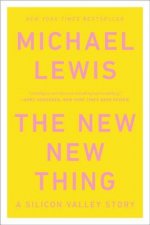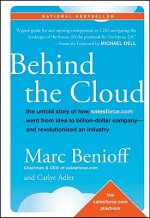
Code: 05134372
Unexpected Alliances
by Young-a Park
Since 1999, South Korean films have dominated roughly 40 to 60 percent of the Korean domestic box-office, matching or even surpassing Hollywood films in popularity. Why is this, and how did it come about? In "Unexpected Alliances, ... more
- Language:
 English
English - Binding: Hardback
- Number of pages: 224
Publisher: Stanford University Press, 2014
- More about this

63.54 €

Low in stock at our supplier
Shipping in 13 - 16 days
Potřebujete více kusů?Máte-li zájem o více kusů, prověřte, prosím, nejprve dostupnost titulu na naši zákaznické podpoře.
Add to wishlist
You might also like
-

Literature, Disaster, and the Enigma of Power
31.77 € -

Caleb
17.04 € -4 % -

Liposomes, Part D
186.31 € -

Ecosystems and Human Well-Being
32.27 € -

Mur De L'Atlantique
24.20 € -

Reliability in Procurement & Use - From Specification to Replacement
586.99 € -

Family
24.81 €
Give this book as a present today
- Order book and choose Gift Order.
- We will send you book gift voucher at once. You can give it out to anyone.
- Book will be send to donee, nothing more to care about.
More about Unexpected Alliances
You get 159 loyalty points
 Book synopsis
Book synopsis
Since 1999, South Korean films have dominated roughly 40 to 60 percent of the Korean domestic box-office, matching or even surpassing Hollywood films in popularity. Why is this, and how did it come about? In "Unexpected Alliances," Young-a Park seeks to answer these questions by exploring the cultural and institutional roots of the Korean film industry's phenomenal success in the context of Korea's political transition in the late 1990s. The book investigates the unprecedented interplay between independent filmmakers, the state, and the mainstream film industry under the post-authoritarian administrations of Kim Dae Jung (1998-2003) and Roh Moo Hyun (2003-2008), and shows how these alliances were critical in the making of today's Korean film industry. During South Korea's post-authoritarian/reform era, independent filmmakers with activist backgrounds were able to mobilize and transform themselves into important players in state cultural institutions and in negotiations with the purveyors of capital. Instead of simply labeling the alliances "selling out" or "co-optation," Young-a-Park explores the new spaces, institutions, and conversations which emerged and shows how independent filmmakers played a key role in national protests against trade liberalization, actively contributing to the creation of the very idea of a "Korean national cinema" worthy of protection. Independent filmmakers changed not only the film institutions and policies but the ways in which people produce, consume, and think about film in South Korea--blurring the rigid boundaries that separated the state and political activism, corporate conglomerates and independent artists, and local and global cultural realms.
 Book details
Book details
Book category Books in English Economics, finance, business & management Industry & industrial studies Media, information & communication industries
63.54 €
- Full title: Unexpected Alliances
- Author: Young-a Park
- Language:
 English
English - Binding: Hardback
- Number of pages: 224
- EAN: 9780804783613
- ISBN: 0804783616
- ID: 05134372
- Publisher: Stanford University Press
- Weight: 486 g
- Dimensions: 325 × 519 × 16 mm
- Date of publishing: 05. November 2014
Trending among others
-

Mindset
15.42 € -12 % -

Talking As Fast As I Can
11.29 € -28 % -

How Google Works
11.29 € -23 % -

Blood, sweat, and pixels
15.42 € -7 % -

Steve Jobs
13.81 € -29 % -

Sleight of Mouth
24 € -21 % -

Steve Jobs
31.56 € -14 % -

Hit Refresh
9.98 € -22 % -

Wizard of Ads
15.52 € -18 % -

Madison Avenue Manslaughter
13.31 € -28 % -

Leadership Is Language
15.52 € -29 % -

Attention Merchants
13.10 € -37 % -

Infotech Student's Book
62.33 € -

Black Like Me
11.29 € -28 % -

Easy Riders, Raging Bulls
17.24 € -28 % -

Music Business For Dummies
19.86 € -35 % -

IT Manager's Handbook
47.50 € -15 % -

Introducing the Creative Industries
47.60 € -10 % -

Information Security Auditor
30.25 € -

Samuel Beckett's Library
33.18 € -

Project to Product
19.26 € -28 % -

Glass Castle
10.38 € -29 % -

Virtual Economies
61.93 € -

Diary of a Bookseller
10.99 € -25 % -

Jony Ive
13.31 € -20 % -

Cybersecurity and Cyberwar
11.29 € -28 % -

Death of Expertise
14.21 € -28 % -

Hatching Twitter
14.31 € -22 % -

Attention Economy and How Media Works
37.11 € -19 % -

Disrupted
10.88 € -26 % -

Prediction Machines
24.81 € -19 % -

Fender: The Inside Story
24.60 € -11 % -

Becoming Steve Jobs
12.60 € -24 % -

Taliban Shuffle
12.10 € -42 % -

Reporter
11.29 € -28 % -

Nobody Leaves
10.28 € -20 % -

Unknown Unknown
2.61 € -19 % -

House That Trane Built
26.22 € -14 % -

Marketing to Moviegoers
34.79 € -4 % -

New New Thing
13.20 € -26 % -

Producing Games
36.10 € -28 % -

Jadoo
20.57 € -

Blow by Blow
19.06 € -13 % -

Conspiracy
14.31 € -21 % -

Return To The Little Kingdom
10.58 € -18 % -

Grand Design
52.24 € -

Beyond Belief
22.38 € -13 % -

Four
11.29 € -28 % -

Behind the Cloud - The Untold Story of How Salesforce.com Went from Idea to Billion-Dollar Company-- and Revolutionized an Industry
21.17 € -29 %
Collection points Bratislava a 2642 dalších
Copyright ©2008-24 najlacnejsie-knihy.sk All rights reservedPrivacyCookies


 15549 collection points
15549 collection points Delivery 2.99 €
Delivery 2.99 € 02/210 210 99 (8-15.30h)
02/210 210 99 (8-15.30h)